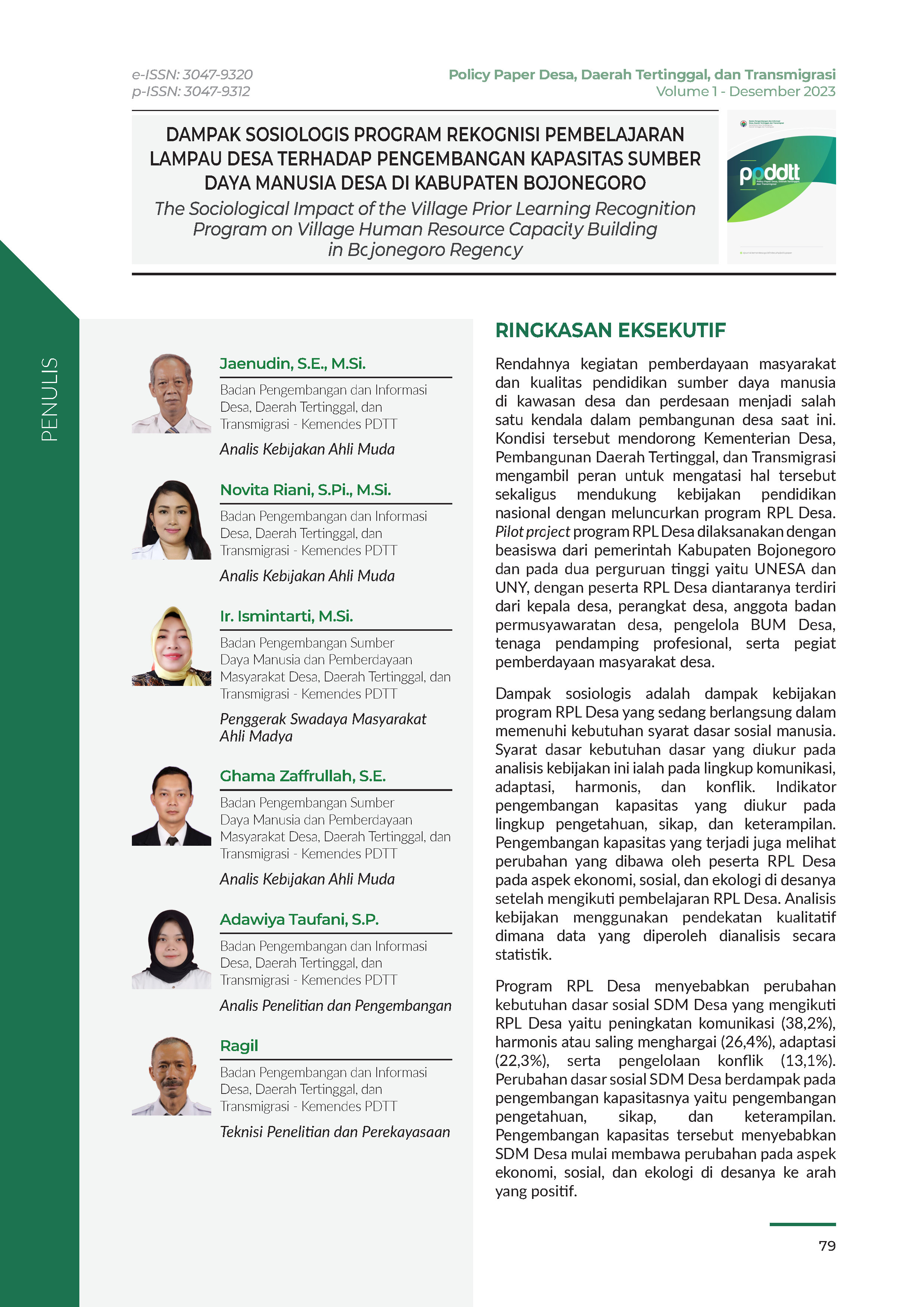The Sociological Impact of the Village Prior Learning Recognition Program on Village Human Resource Capacity Building in Bojonegoro Regency
Keywords:
human resource capacity, sosiological, Village PLRAbstract
The low level of community empowerment activities and the quality of human resource education in village and rural areas is one of the obstacles to current village development. These conditions have prompted the Ministry of Villages, Development of Disadvantaged Regions, and Transmigration to take a role in overcoming this and at the same time supporting national education policies by launching the RPL Desa (Village Prior Learning Recognition) program. The pilot project for the Village PLR program was carried out with scholarships from the Bojonegoro Regency government and at two tertiary institutions, namely UNESA and UNY, with Village PLR participants including village heads, village officials, members of village consultative bodies, BUM Desa managers, professional assistants, and activists village community empowerment.
The sociological impact is the impact of the Village PLR program's ongoing policy on fulfilling the basic human social requirements. The basic requirements for basic needs measured by this policy analysis are the scope of communication, adaptation, harmony, and conflict. Capacity building indicators are measured in the scope of knowledge, attitudes and skills. The capacity building that occurred also saw the changes brought about by Village PLR participants in the economic, social, and ecological aspects of their village after participating in Village PLR lessons. Policy analysis uses a qualitative approach where the data obtained will be analyzed statistically.
The Village PLR program led to changes in the basic social decisions of Village HR following the Village PLR, namely increased communication (38.2%), harmony or mutual respect (26.4%), adaptation (22.3%), and conflict management (13.1%). Changes in the social basis of Village HR have an impact on capacity building, namely the development of knowledge, attitudes and skills. This capacity building causes village human resources to start bringing positive changes to the economic, social and ecological aspects of their village.
Some of the recommendations from the results of the policy analysis are Improving assistance, training and guidance to Village PLR participants regarding scientific writing, material understanding, and task completion; The Ministry of Villages DDRT needs to compile regulations/policies that are higher than ministerial decrees related to Village PLR, starting from the initial stage to post-implementation which can be implemented by all tertiary institutions, scholarship recipients from third parties, as well as self-funded by Village PLR participants themselves; It is necessary to compile regulations related to the implementation of Village PLR learning both online and face-to-face, curriculum and quality standards to guarantee the quality of Village PLR graduates; It is necessary to develop a basis, system, and monitoring and evaluation instruments for both Village PLR participants, Village PLR managers in Universities, Funders, starting from the initial stage to post-implementation; Carry out ongoing monitoring and evaluation of the Village RPL program carried out by the Ministry of Village DDRT, Universities, and Funders; The Village PLR program needs to be implemented more broadly as an effort to increase access to higher education for village human resources because it has been proven to develop the capacity of village human resources; Decree of the Minister of Village DDRT Number 122 of 2021 needs to be reviewed, completed, formulated, and refined again, and funders need to compile Village PLR scholarship regulations related to sanctions given to scholarship recipients if certain conditions occur.
Downloads


